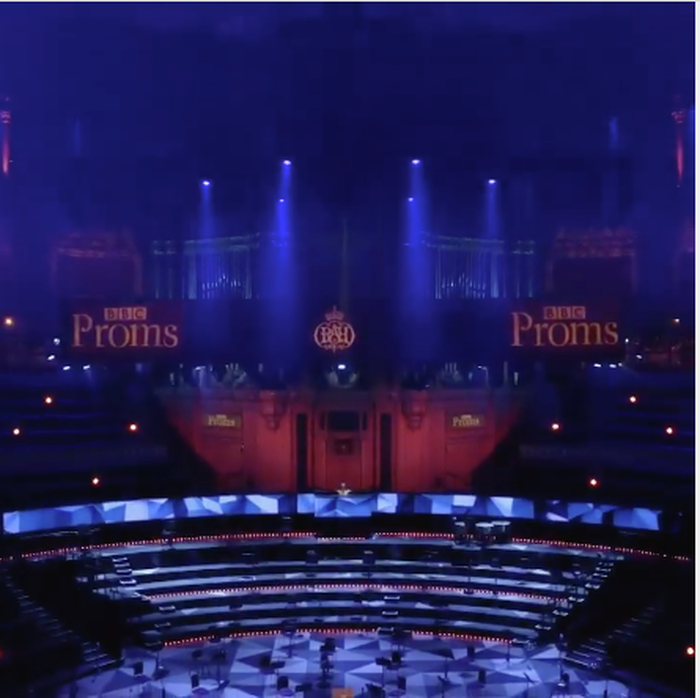Is it time to cancel Beethoven?
James Mitchell reflects on Beethoven’s legacy in light of the composer’s 250th year

2020 marks the 250th birthday of Ludwig van Beethoven (1770 – 1827) and, as such, there seems to have been an interminable number of ‘Beethoven 250’ concerts by virtually every classical music organisation imaginable. However, the standard criticisms of Beethoven have also intensified this year, sometimes leading to online stand-offs.
When Vox published an article describing Beethoven’s Fifth Symphony as “a reminder of classical music’s history of exclusion and elitism”, the right-wing media threw up a storm over it and declared it “woke madness”, with even Ben Shapiro offering his own “delicate” response. In light of the recent #MeToo and BLM movements, Beethoven’s symbolic nature as the potentially prototypical ‘pale, male and stale’ composer has become ever more prominent. The feminist musicologist Susan McClary infamously compared the recapitulation in his Ninth Symphony to “the throttling murderous rage of a rapist incapable of attaining release”. Is it therefore time to throw the whole man out? If we ‘cancelled’ Beethoven, wouldn’t that eventually result in a more diverse, inclusive and accessible classical music scene?
First, we must look at how things got this way. During the 19th century, rising nationalism in Germany saw an increased focus on Germanic cultural heroes such as Martin Luther, J. S. Bach and of course Beethoven. Beethoven’s 100th birthday anniversary in 1870 saw numerous boasts about German musical superiority, such as from composer and professional buttmunch Richard Wagner.
“Beethoven’s central musical status has grown even into the 21st century.”
These narratives only intensified in the 20th century, particularly in the Third Reich. Beethoven’s legacy was perhaps cemented in modern times, however, by the influence of both pre- and post-war musicologists. Donald Francis Tovey, the progenitor of English musicology (and a public figure in his day), along with figures like Theodor Adorno and Carl Dahlhaus, sought the position of both classical music, and particularly Beethoven, as universal in a changing world where Adorno’s ‘light’ music (as opposed to the ‘serious’ nature of classical music) was becoming ever more popular.
Beethoven’s central musical status has grown even into the 21st century. The question of “Was Beethoven Black?” keeps resurfacing over 100 years after being first proposed. He was the most performed composer in America in 2019-20, with over double the number of performances of Mozart (the second most performed). Being a guaranteed ticket-seller and donor pleaser, he keeps reappearing in concert programmes to the exclusion of other, more diverse composers. In the neo-liberal world, where audiences prefer the familiar, such attitudes to programming are unlikely to change unless there is a mass cultural boycott (i.e. ‘cancelling’) of composers like Beethoven.
Is this therefore the way forward? Well, not really. Notwithstanding that some people actually like Beethoven’s music, the problems classical music faces are more deeply rooted than just a single composer. The nationalist and colonialist appropriation of classical music by Wagner and others, with its attached racism and sexism, is part of its history. More problematic is the argument posed by musicologist Anna Bull: “Classical music requires the exclusionary practices described earlier [in her chapter] in order to demonstrate how it is different from other genres”.
“The problems classical music faces are more deeply rooted than just a single composer.”
According to Bull’s theory, removing Beethoven from the scene would only result in a different ‘pale, male and stale’ composer (e.g. Mozart) taking his symbolic place. Sustaining these exclusions, Bull argues, protects “classical music’s special status as ‘legitimate’ and its concomitant high levels of public investment”. Removing Beethoven would therefore not fundamentally change this situation.
In fact, it could make it worse. Music, particularly classical music, is fundamentally intertwined with politics as the recent Rule, Britannia row shows. Such an overtly political move as cancelling Beethoven would generate tension and a possible loss in ticket revenue from the right-wing audience (which has happened before with Beethoven). In a world of limited arts funding, with coronavirus having hit classical music hard, any drop in revenue could lead to organisations relying even more on other bankable hits, leading to a greater exclusion of more diverse composers. To cancel Beethoven could potentially work against its intended goal; while this view may be slightly speculative, it must at least be taken into account.
The only real conclusion is that every way forward is problematic. Keeping everything the same also keeps the current problems in place. Decentralising Beethoven, however, could both lead to increased conservatism in programming and exacerbate classical music’s supposed decline, potentially causing young people to lose out on the cultural benefits of it e.g. youth orchestras (in her research, Bull highlights the value of the “classical music ecology”).
There is no straightforward solution to solving these problems without causing other ones. However, perhaps this is unavoidable. A reliance on looking for simple solutions blinds us to the true complexity of the situation. Cancelled or not, Beethoven will continue to force the classical music world to look at itself in the mirror and, maybe, this isn’t a bad thing.
 News / Colleges charge different rents for the same Castle Street accommodation2 March 2026
News / Colleges charge different rents for the same Castle Street accommodation2 March 2026 News / King’s hosts open iftar for Ramadan3 March 2026
News / King’s hosts open iftar for Ramadan3 March 2026 Theatre / Lunatics and leisure centres 4 March 2026
Theatre / Lunatics and leisure centres 4 March 2026 News / Angela Merkel among Cambridge honorary degree nominees27 February 2026
News / Angela Merkel among Cambridge honorary degree nominees27 February 2026 News / News in Brief: waterworks, wine woes, and workplace wins 1 March 2026
News / News in Brief: waterworks, wine woes, and workplace wins 1 March 2026








